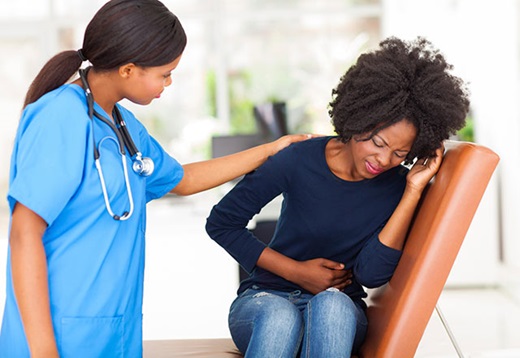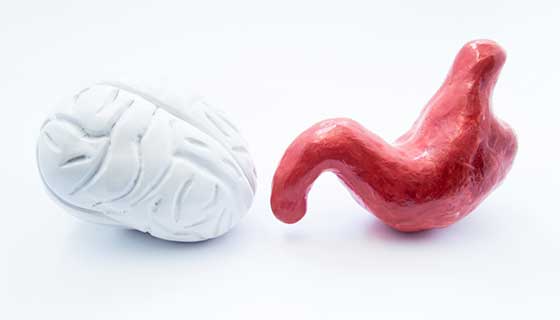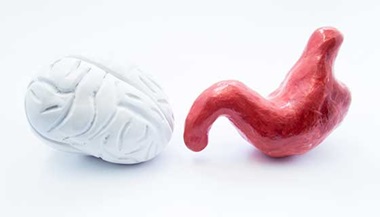Why Does My Stomach Hurt?
Tummy troubles are a common cause for a visit to the doctor’s office. When patients complain of “stomach pain,” they are sometimes describing pain that is throughout the abdomen area and may not actually be directly related to the organ known as the stomach.
Doctors first try to determine if a patient’s abdominal pain is caused by a structural or functional problem.

Sometimes the digestive tract does not function properly due to an abnormality with the structure of an organ. Medical imaging will show that the organ does not look normal and is not working properly.
The gastrointestinal system has its own nervous system to control the muscle contractions that digest the food you eat. Functional problems, also called motility disorders, result from poor nerve and muscle function in the digestive tract. Gastrointestinal (GI) organs with motility problems will usually look normal on medical imaging tests, such as CT scans or MRI scans, but the organs do not work like they should. Because functional disorders are hard to see in imaging, they can be challenging to diagnose.
5 Reasons for Stomach Pain
Irritable Bowel Syndrome (IBS)
IBS related abdominal pain may become worse after you eat a meal or if you are stressed. If you have IBS, you will have symptoms such as diarrhea or constipation and bloating, but they will not cause bleeding or weight loss.
Constipation
You may experience sharp gas pains that occur throughout the abdomen area if constipation is the reason for your abdominal pain. People who are constipated often have a feeling of being bloated and full, and their abdomen may even become visibly distended.
Ulcers
An ulcer is a sore on the lining of your stomach or first part of the small intestine. Ulcers may cause a burning sensation similar to hunger pangs. Other symptoms include nausea, vomiting or heartburn.
Pancreatitis
Abdominal pain caused by pancreatitis, which is inflammation in the pancreas, is a severe and sharp pain occurring in the upper middle of the abdomen that can sometimes radiate to your back or chest. You may also experience other symptoms such as nausea, vomiting and fever. Pancreatitis may occur as either a sudden acute attack or a chronic condition.
Diverticulitis
Abdominal discomfort and tenderness in the lower left abdomen area may be caused by diverticulitis. This is when the small pouches inside the large intestine become infected or inflamed. Other symptoms may include a low-grade fever, nausea, vomiting or constipation.






